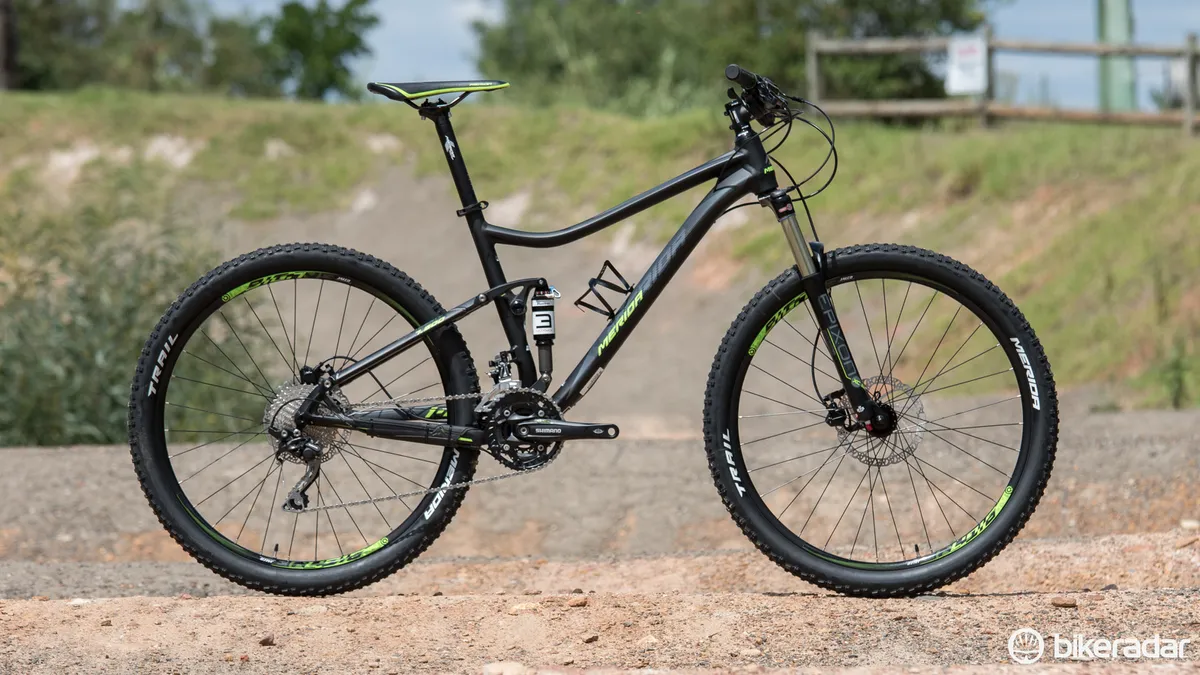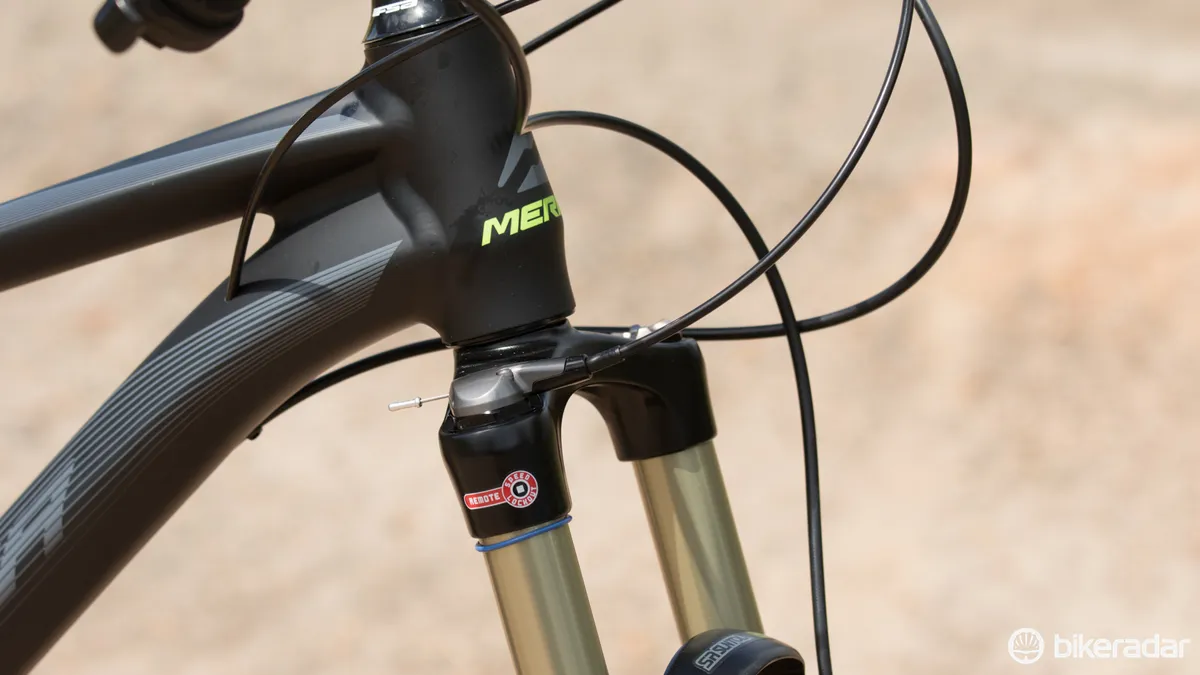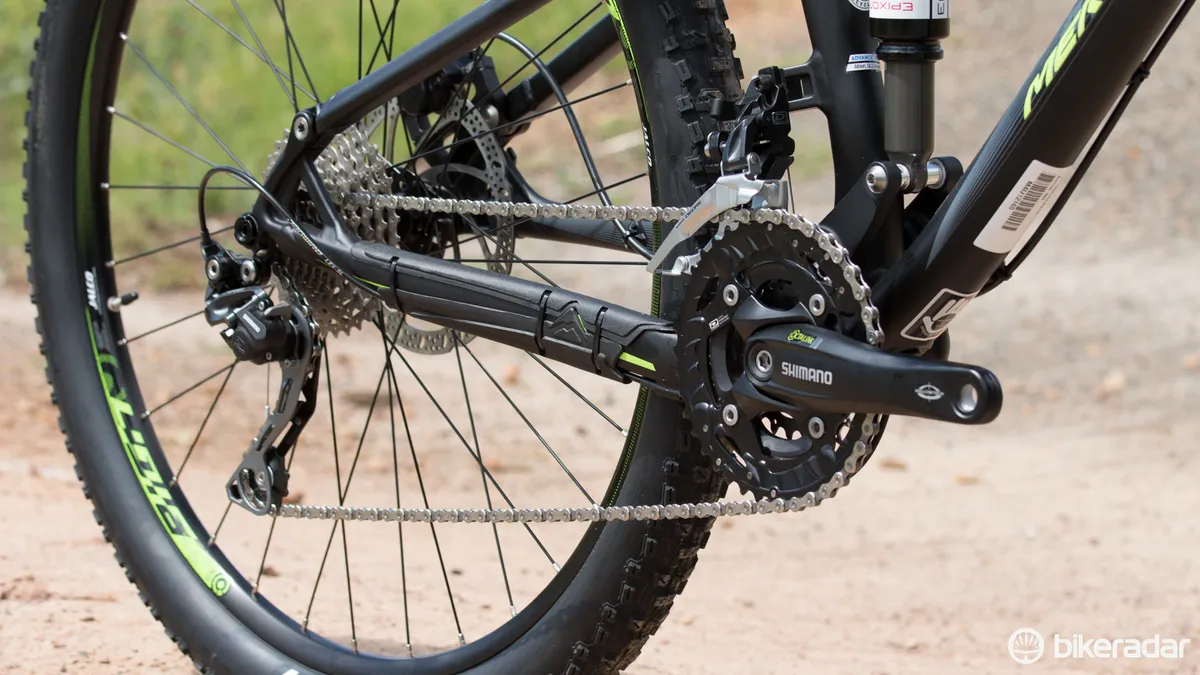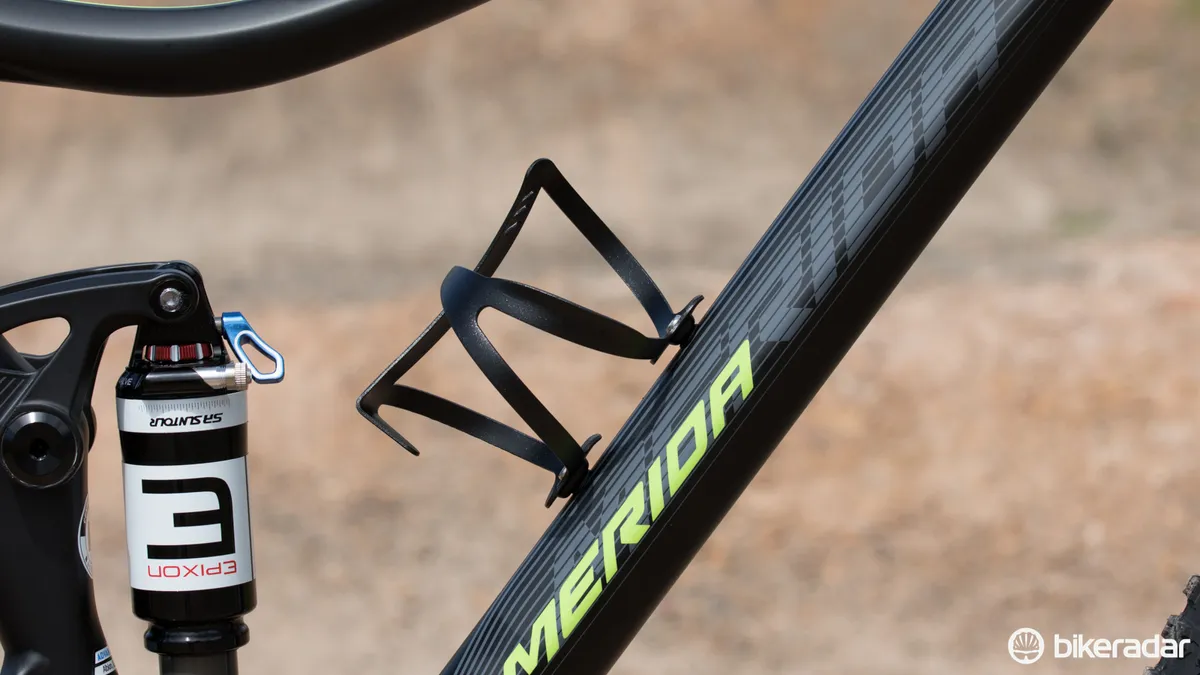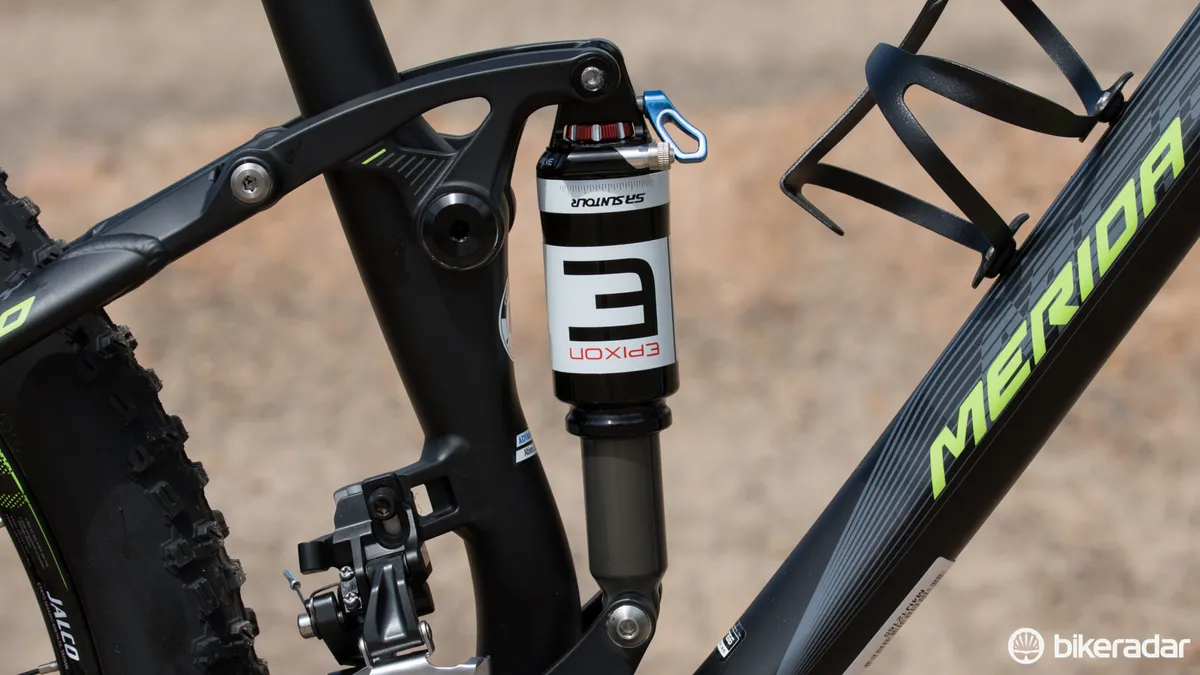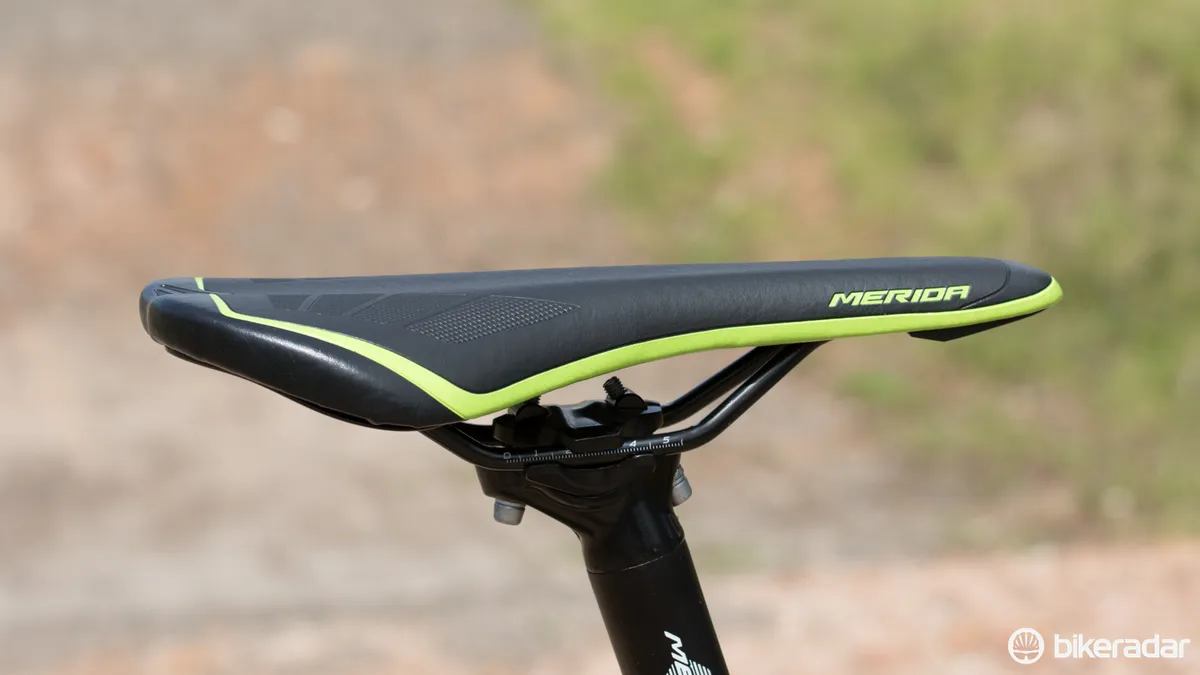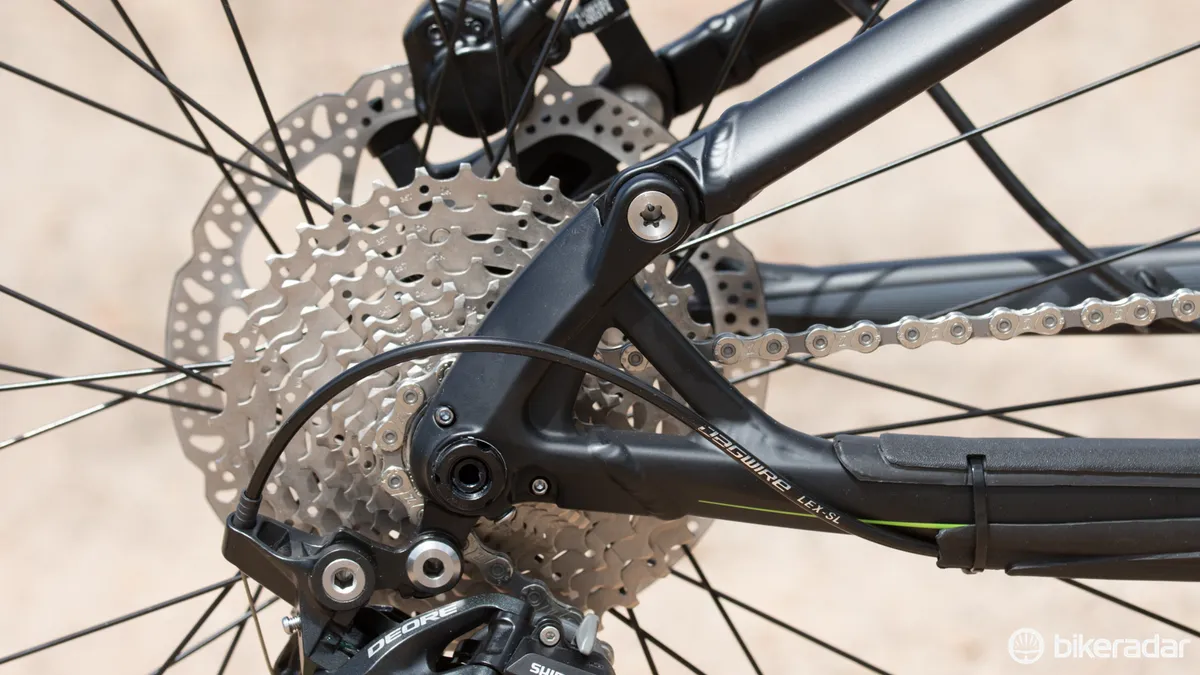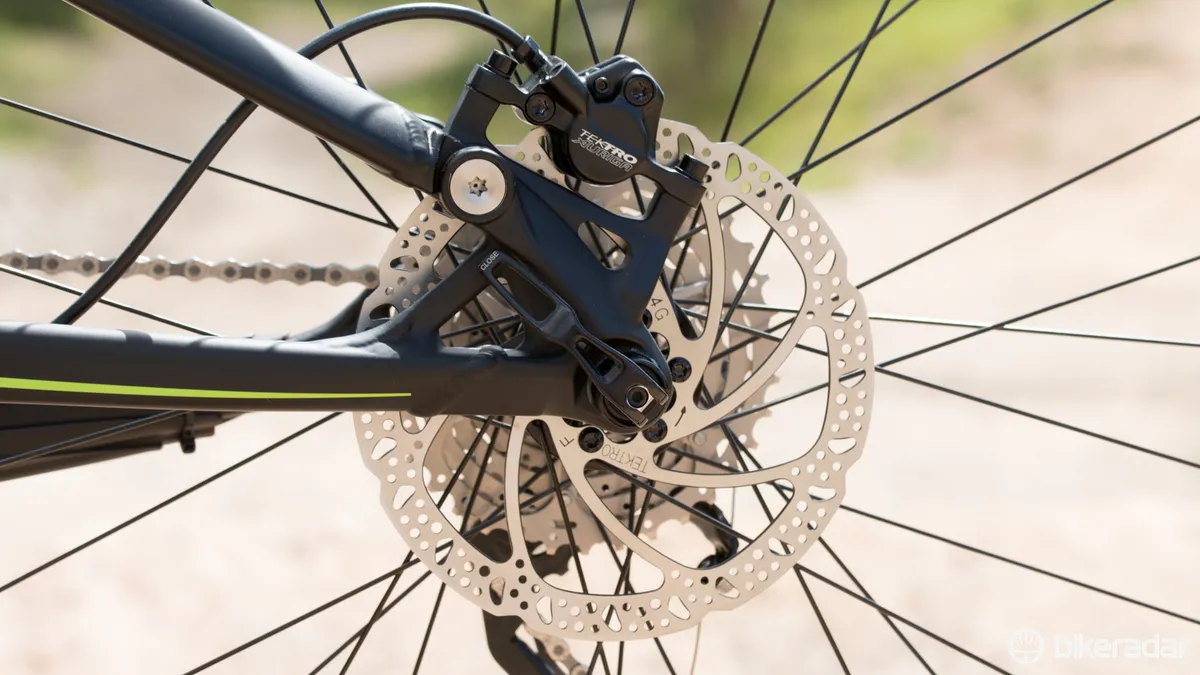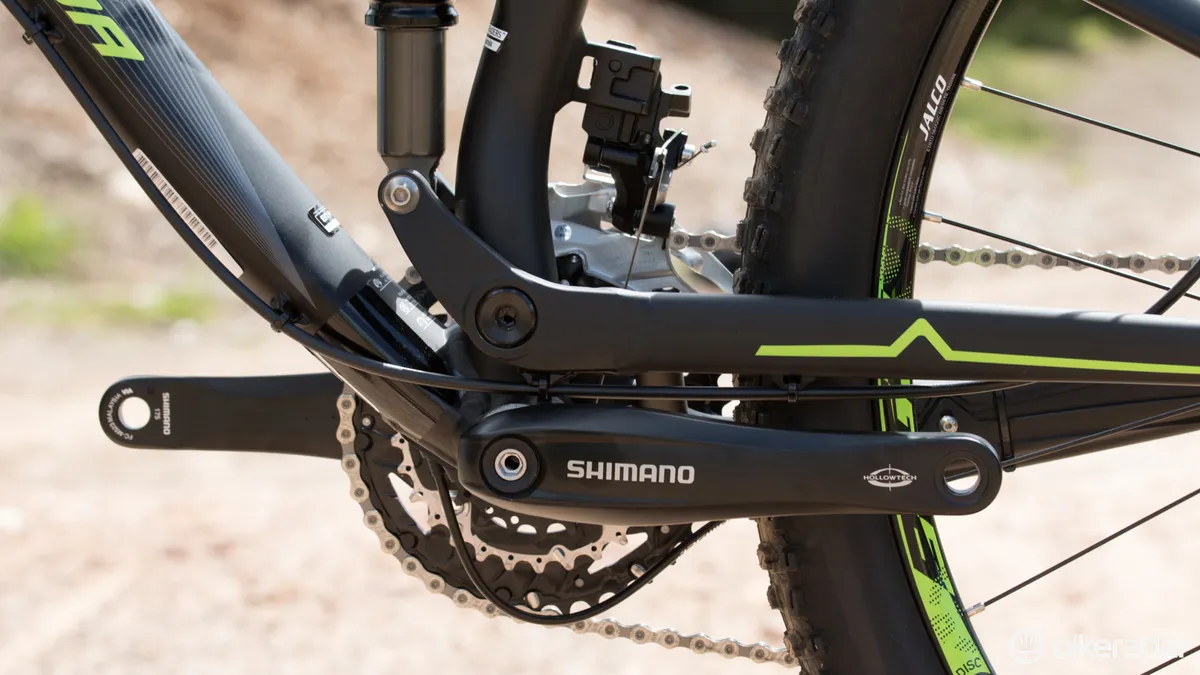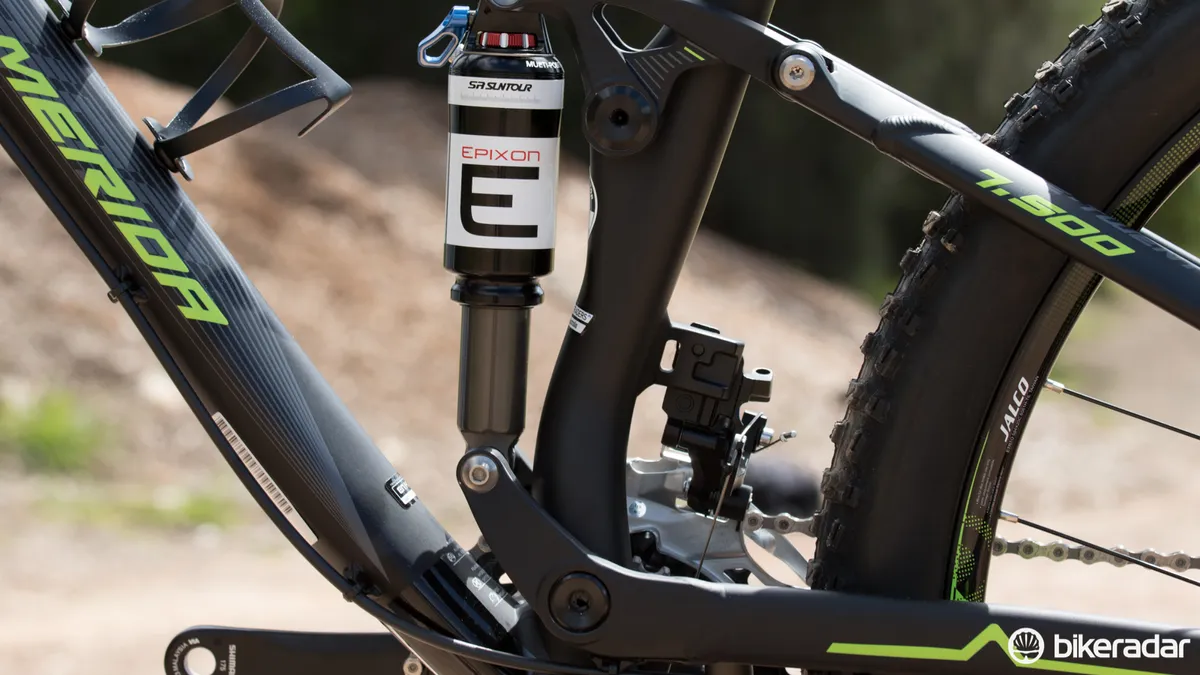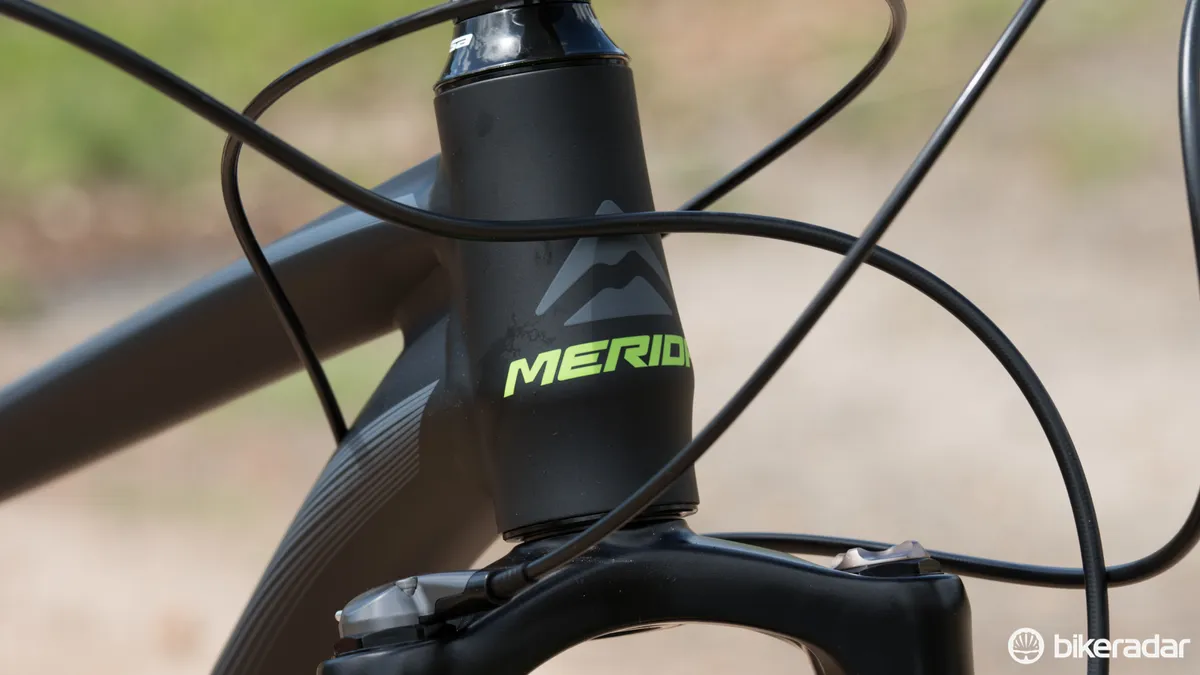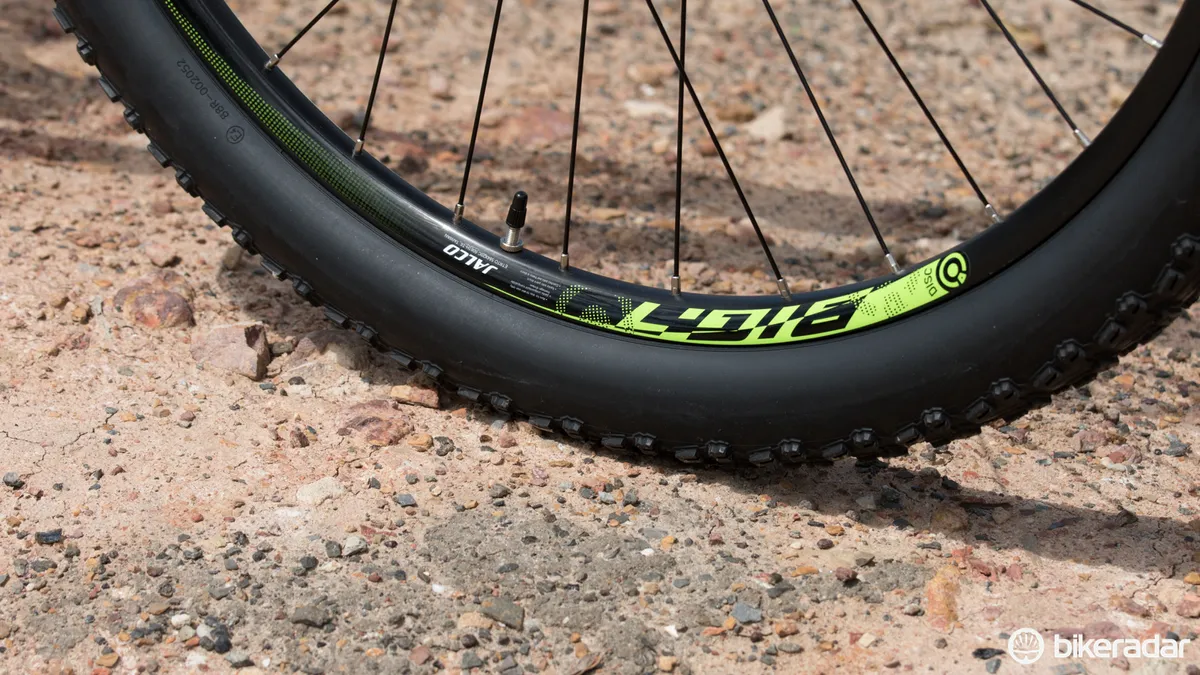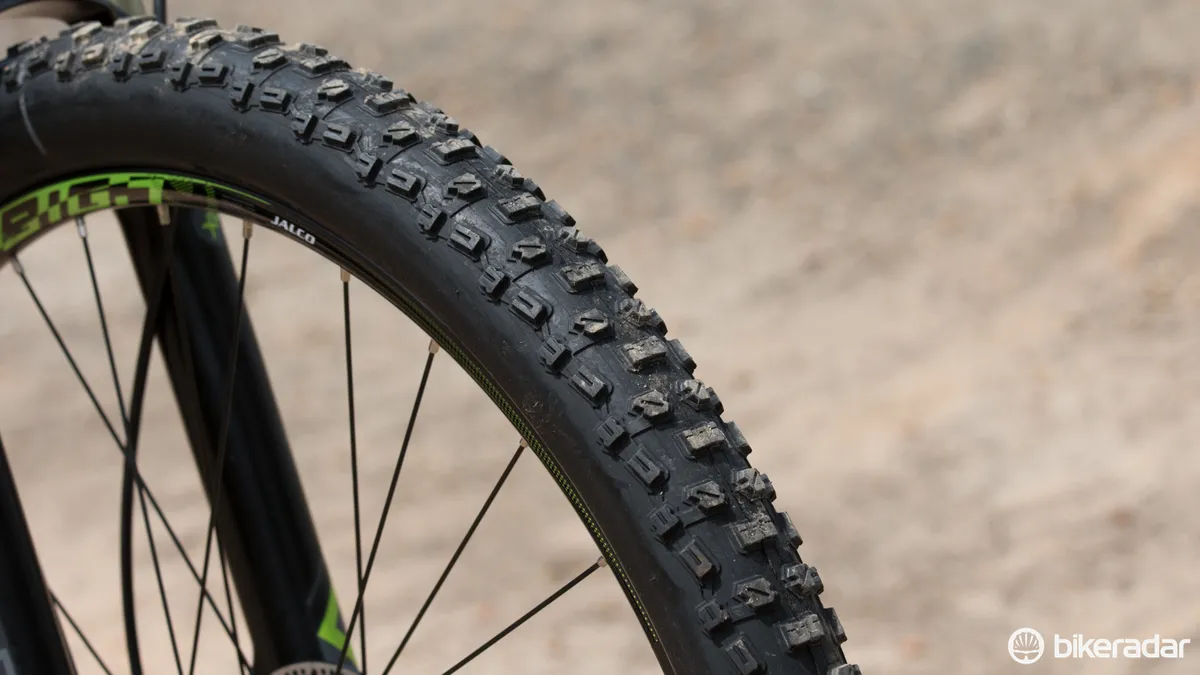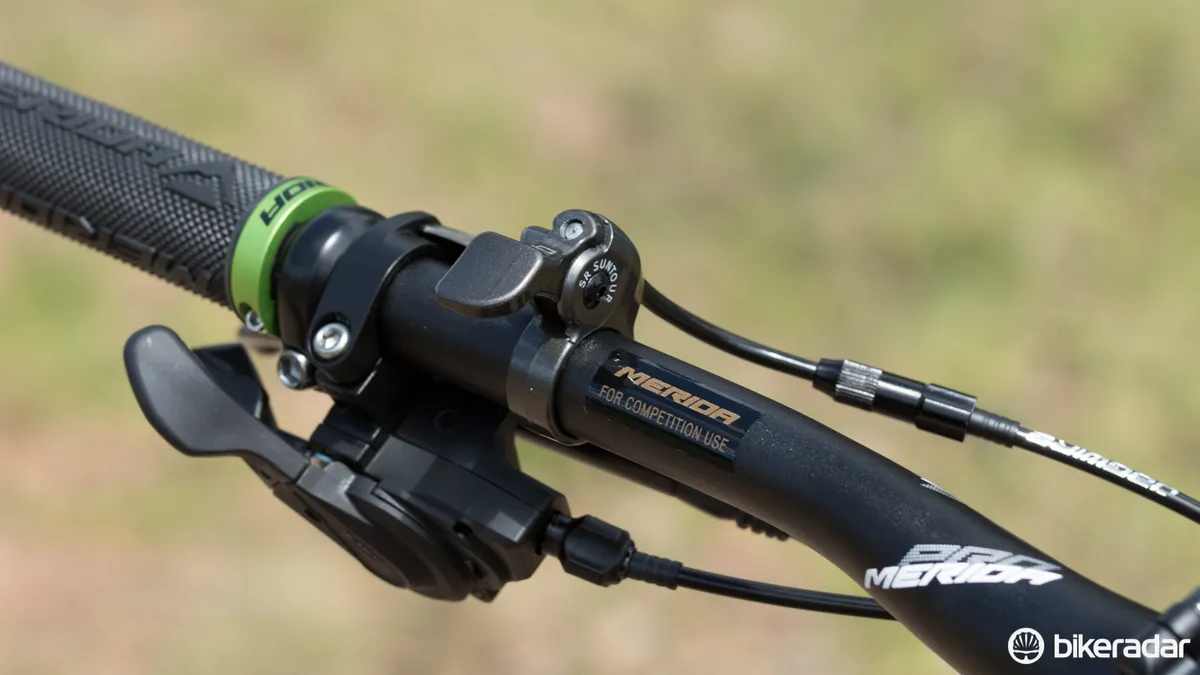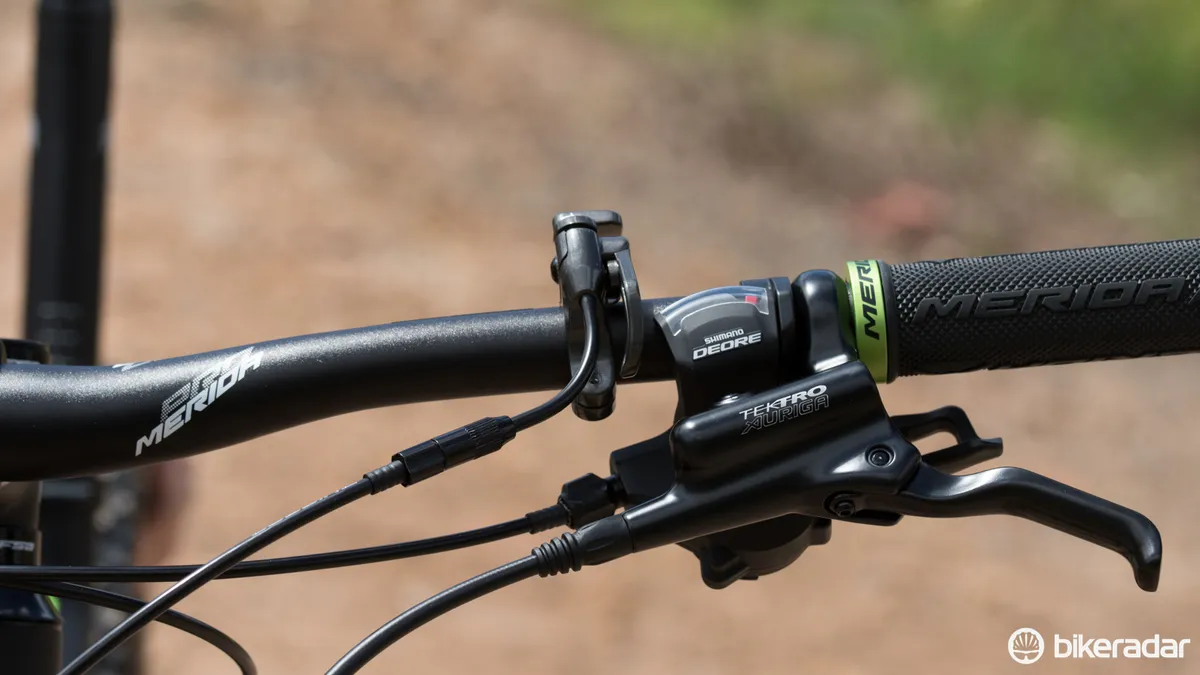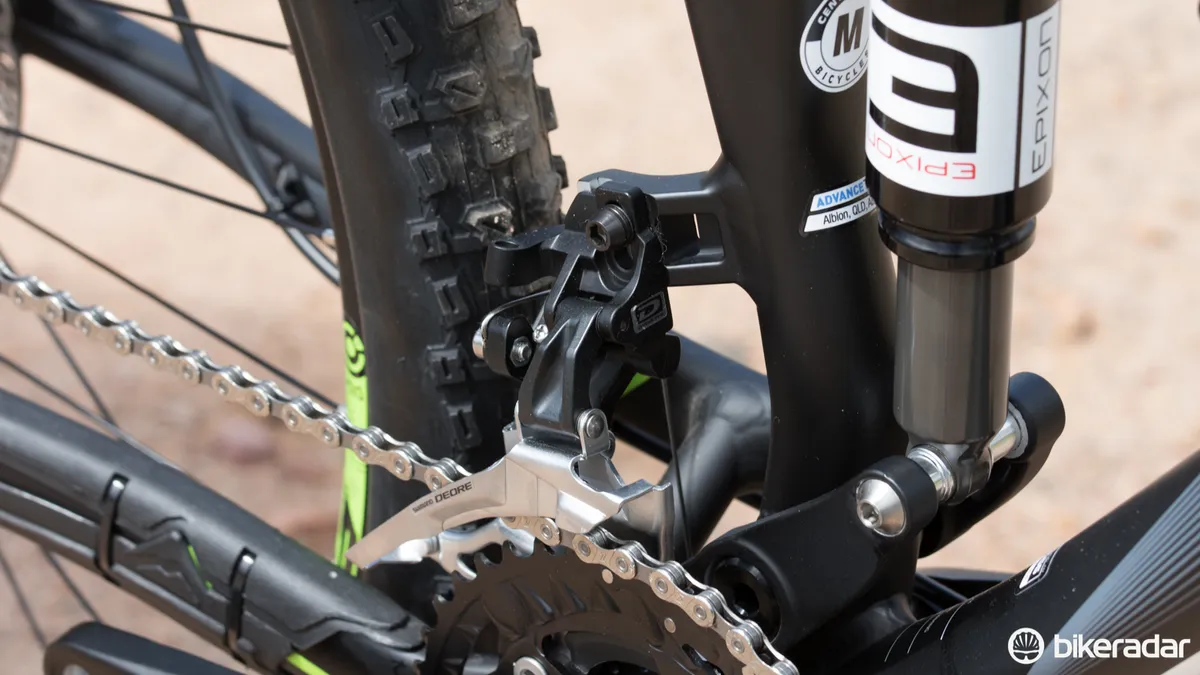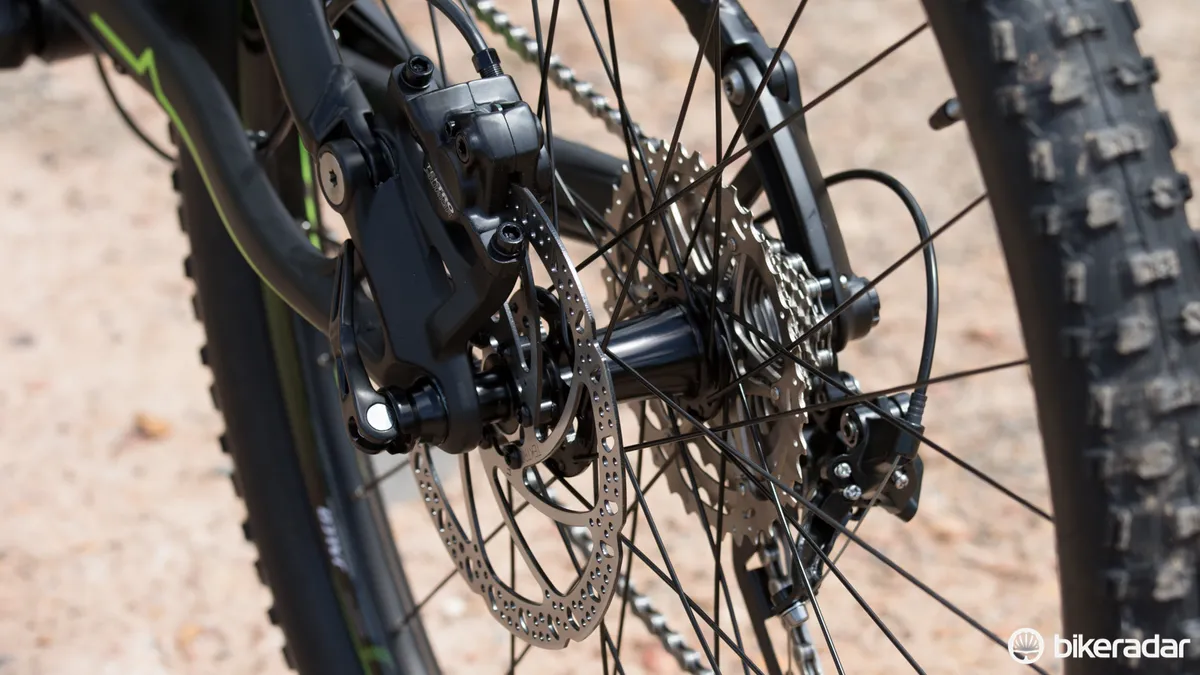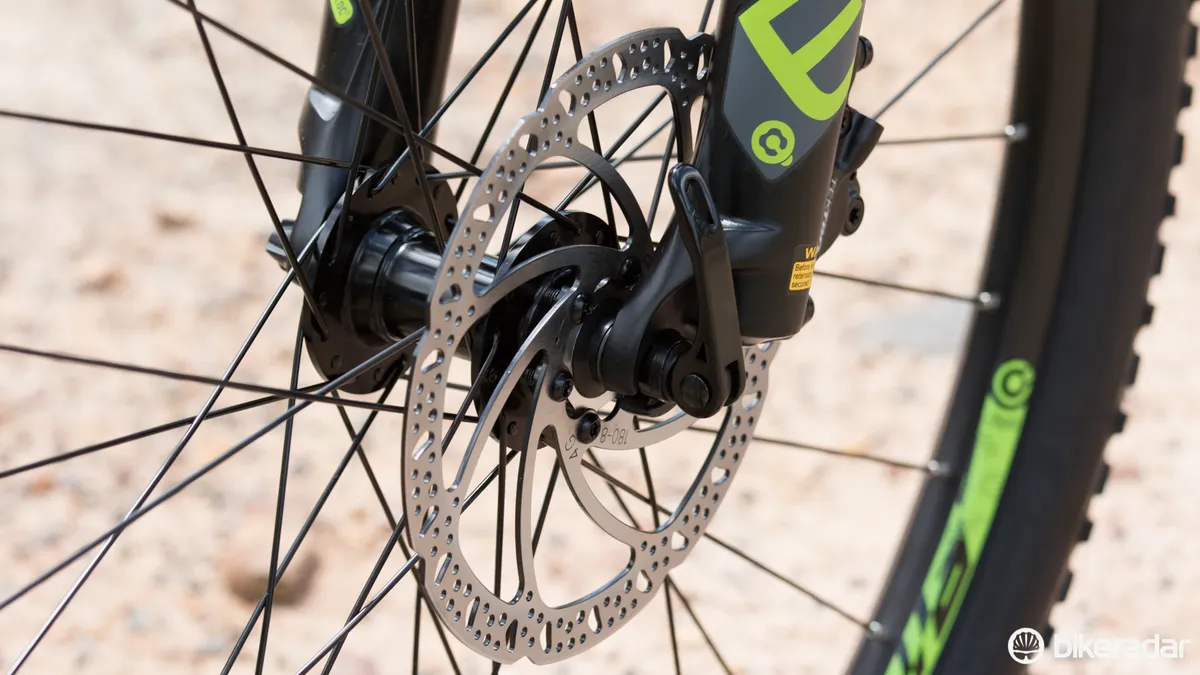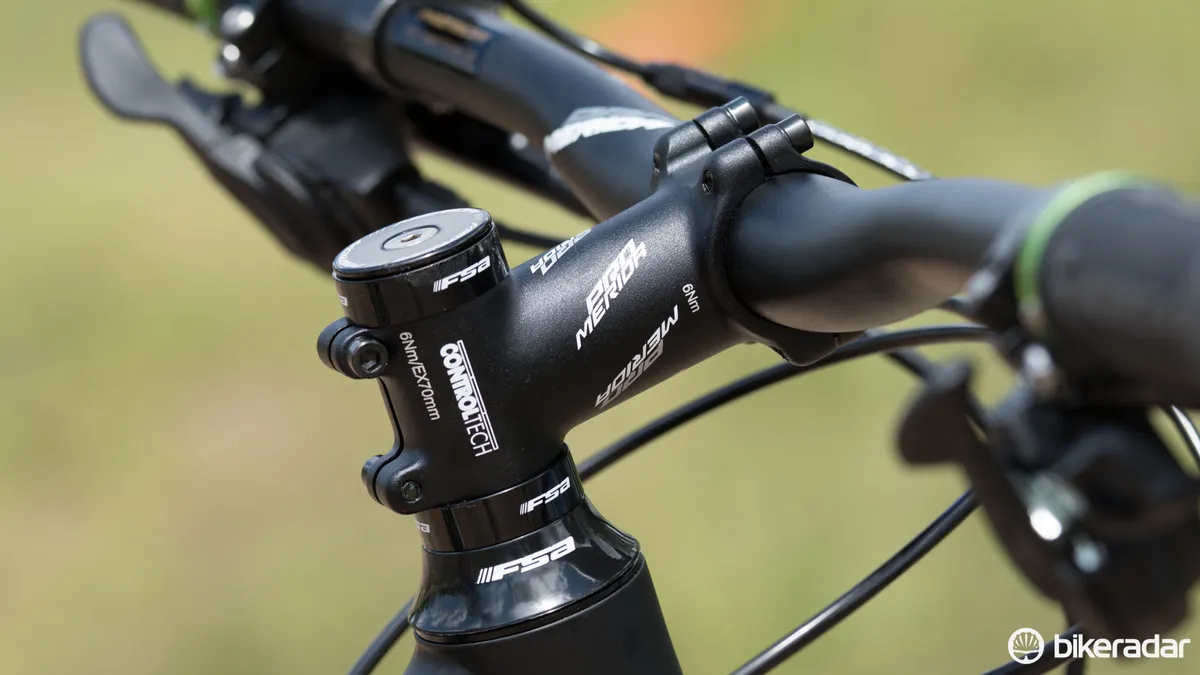The Merida One-Twenty 7 is a value-orientated 27.5in wheeled trail bike platform introduced for 2015. Here we review the base model 7.500, which shares a near identical frame with the more expensive models, but with a few tweaks and a componentry list that places it at a lowly price point where just a handful of others compete.
At what price does a dual suspension bike become properly off-road worthy? It’s a question we’re commonly asked and one that remains a trade-off in weight and durability when compared to a similarly priced hardtail. With a quality frame, the Merida One Twenty 7.500 may just be that entry point and one that we investigated in a recent BikeRadar Battle.
- Highs: Quality frame construction, strong trail performance, confidence-inducing
- Lows: Unbalanced suspension, noisy fork, difficult fork upgrade, long brake reach
- First upgrades: Dropper seat post, faster tyres
- Buy if: You’re seeking a confident trail bike on a tight budget
Frame: German engineering and a handful of fancy features
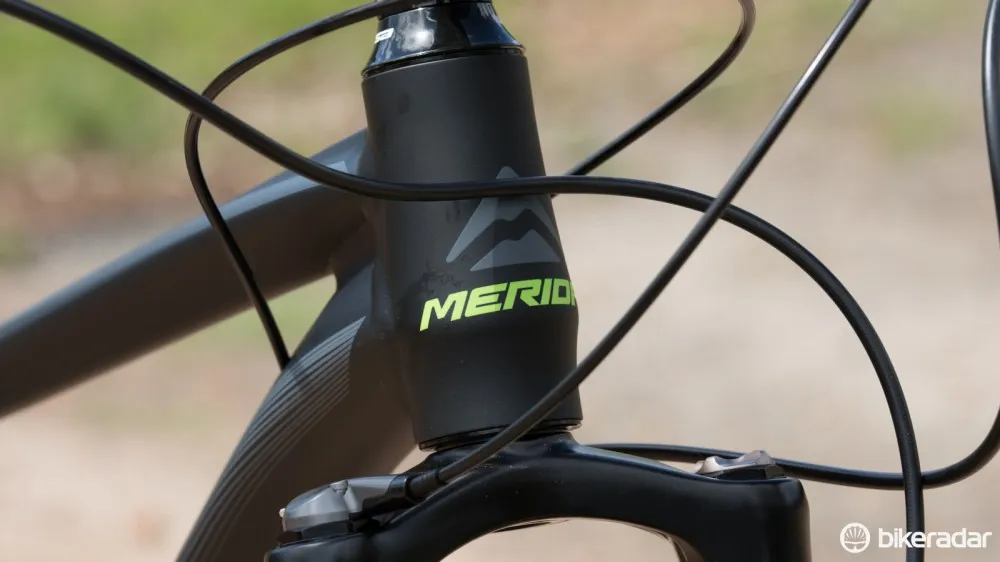
It's rare that a brand would change the frame for one model, but the front triangle of the 7.500 is different to its more expensive siblings
It’s common for brands to mass-produce a single frame within a range and just change the components on it to adjust the model prices. The One-Twenty 7.500’s ‘TFS’ frame is different, and although it’s extremely close to the ‘Lite’ frame of the 7.700 and 7.900 One-Twenty models, it does feature slightly more basic tube shapes and a simpler, straight head tube (The Lite model frame has a tapered head tube). These small changes give some insight into just how many of these bikes Merida – a manufacturing powerhouse – plans to sell.
No doubt the most important aspect of a full suspension frame is the rear suspension design. Here, Merida employs a floating system appropriately dubbed ‘Float Link’. Instead of placing the rear shock onto a fixed position shock mount within the front triangle, the bottom of the shock is instead connected onto an extended chain stay, which remains constantly in motion with the suspension. Merida claims this design allows it to more finely tune how progressive the system is and not have to rely as heavily on the shock’s internal damping design.
Passing through the seat tube, the asymmetrical chainstays play a big part in the One-Twenty’s stiff rear end. A tool-free 142 x 12mm ‘Maxle’ thru-axle out back ensures that everything stays inline.
While the ‘Lite’ frame offers a more advanced front triangle, this one still features a generously swooped top tube for increased standover clearance.
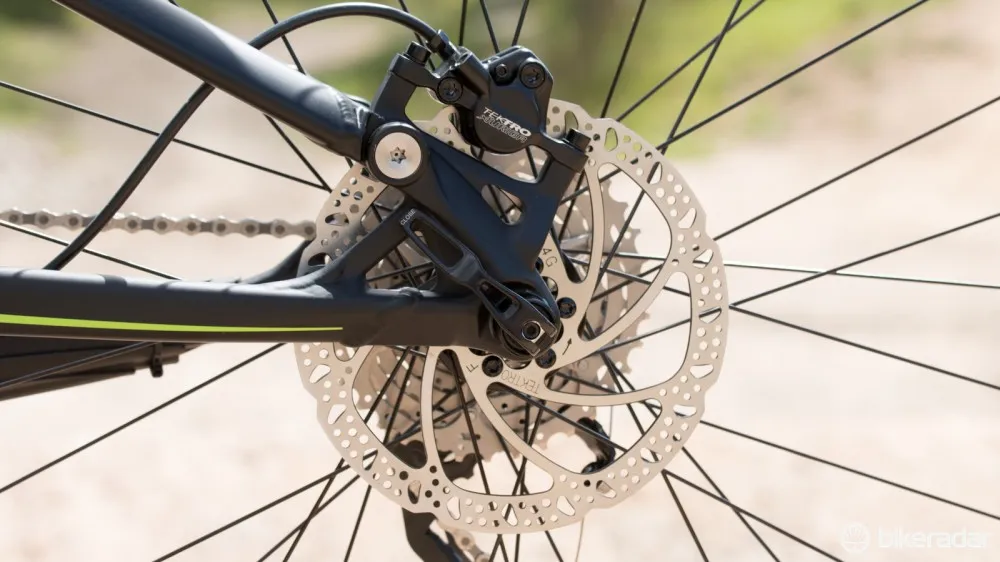
All quality out back – thru-axles aren't common at this price
Dual sealed bearings at the seatstay pivots along with high quality Torx hardware should ensure long service life. Sitting between the cranks is a standard threaded bottom bracket shell, which ensures easy servicing if the need arises.
Internal cable routing keeps the aesthetics clean and exits at the bottom of the frame, well away from any annoying leg or shock rubbing potential. There’s a slot for a dropper seatpost and the exit points prevent the cables migrating under suspension compression. A 31.6mm seatpost diameter means a dropper post upgrade is easily achievable.
For us, the frame’s only issue is the lack of a tapered head tube which limits future fork upgrades, with some of the latest forks being produced in tapered steerer options only.
Equipment: Significant cost cutting to get that rear bounce
With a quality frame and a low price, it’s obvious that trade-offs will be made around component quality.
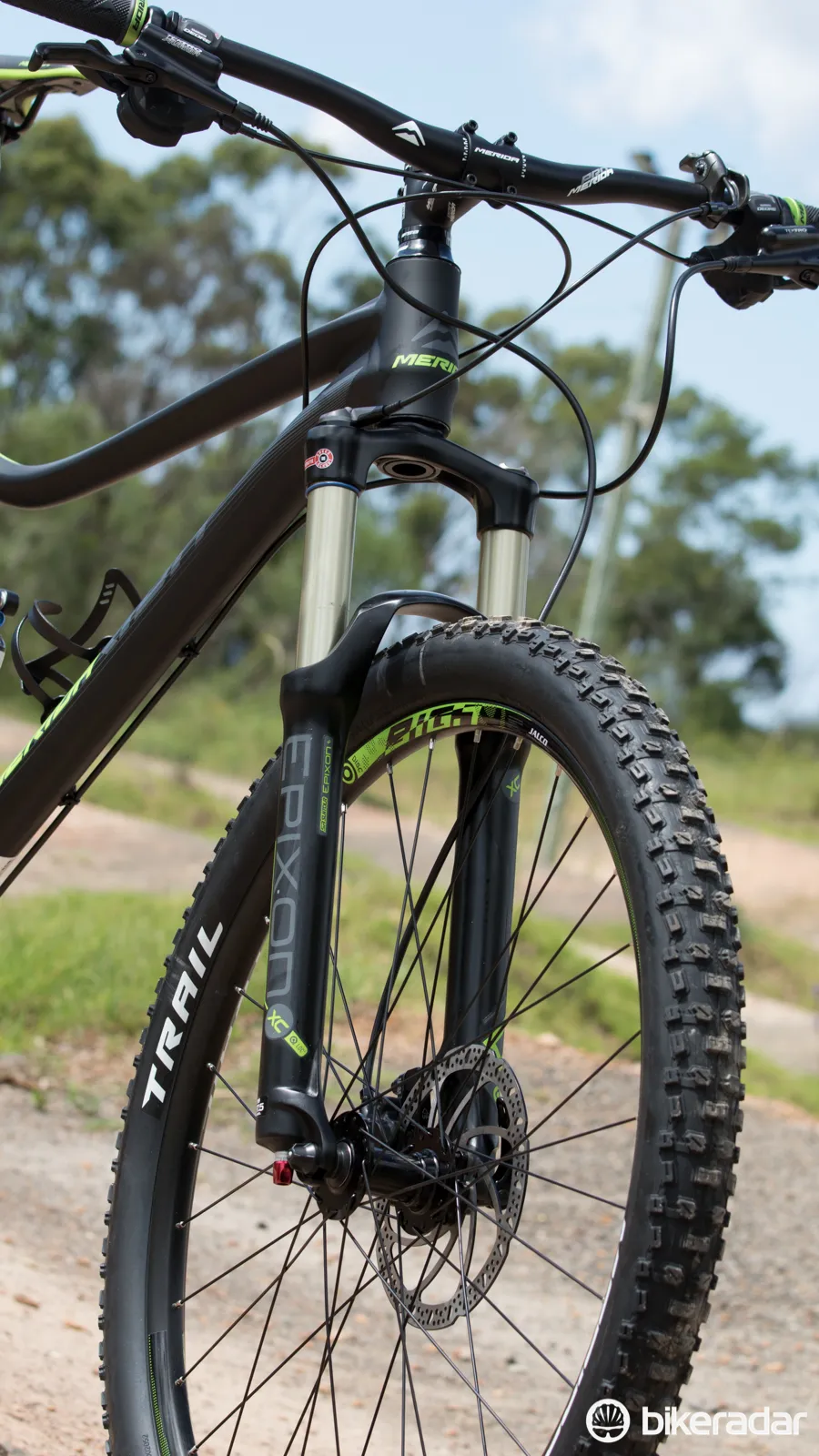
The SR Suntour Epixon fork has plenty to offer, but is the bike's weak point
Following the frame, the suspension is the most critical (and expensive) component on a mountain bike. Here, the SR Suntour name may not share the same appeal of RockShox or Fox, but it allows Merida to provide features such as the air spring, remote lockout and rebound adjustment that wouldn’t be achievable otherwise.
The fork’s handlebar-mounted remote lockout is a neat touch and works nicely. The rebound adjustment provides plenty of range and means the fork is certainly no pogo – same goes for the air spring on the left, which allows you to fine tune the stiffness to your body weight.
We found the air spring a bit of a curious one, and despite running a high pressure, the suspension action remained too linear. A heavy push would see us blow through the full 120mm of available travel.
Further disappointment is seen in the fork’s chassis. Here, the combination of a straight steerer tube and a standard quick release prevent the fork tracking accurately and confidently through rough terrain and off-camber sections.
Sadly, as mentioned above, upgrading the fork later on isn’t so simple because the frame’s cost-cutting 1 1/8in straight head tube will limit your options. Further compounding this is the quick release-only front wheel, which will need to be swapped out with a thru-axle compatible model if you do seek an upgrade.

It's perhaps a little on the firm side, but the rear shock is decent for the money
Out back sits a matching SR Suntour Epicon rear shock. This basic air-sprung unit does everything it needs to, and a large shock-mounted lever provides a simple on-off switch for the lockout.
The One-Twenty’s rolling stock appears basic, with generic black hubs laced to rims from Jalco. These wheels aren’t tubeless-ready, nor lightweight, but they offer a decently wide rim, hide durable sealed bearings in the hubs, and have proven strong and up to the task.
At this price, the use of 27.5in wheels is a clever one that helps the bike’s overall weight stay reasonable (although still not light). At 13.74kg, it’s not too far away from what more expensive 29in equipped bikes weigh.
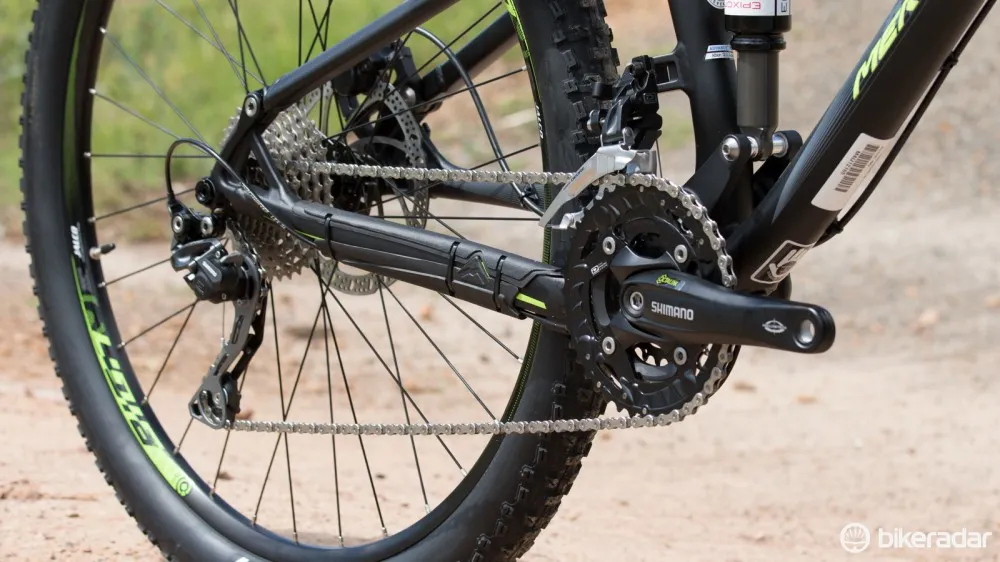
Shimano Deore is a reliable choice
Offering a total of 30 gears, the Shimano Deore drivetrain does everything it should without fuss. Out back, the 10-speed Deore Shadow Plus rear derailleur features a clutch mechanism that holds the chain taut and silent, and prevents dropped chains in rough terrain. Shifting isn’t as fast as more expensive options, but it has no problem finding the gear you demand of it.
Shifting equally reliably up front is a non-series Shimano Octalink crank with Deore-level chainrings. The triple ring is losing ground all the time to simpler 2x and 1x setups, but it offers a nice wide gear range. We found ourselves reaching for the smallest chainring to overcome the bike’s overall weight on steep climbs.
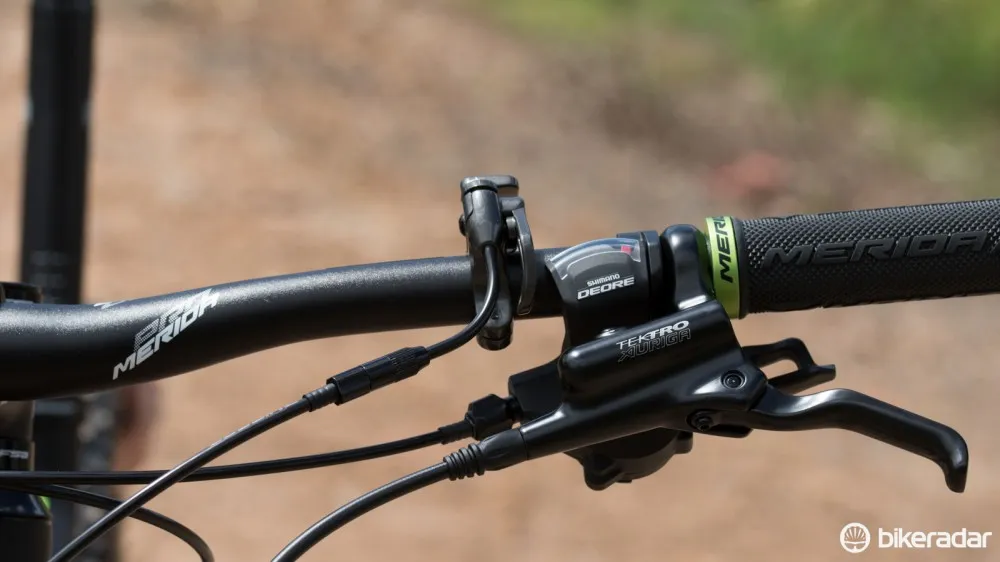
Long reach to the brake levers won't suit small handed riders
The Tektro Auriga hydraulic disc brakes are decent stoppers thanks to their larger 180mm rotors. As a pricepoint brake, they are lacking in lever feedback, which makes modulation a little tougher. And despite the lever reach being adjustable with a hex key, small-handed riders will also find available range insufficient as the reach goes from far to extremely far.
The rest of the build features Merida’s own-brand components which give nothing to complain of. The short stem is a quality item, as are the 740mm riser bars.
Out back a thinly-padded saddle sits on top of the basic alloy seatpost. A quick release collar is given for the post, but a dropper seatpost would be a great upgrade if regularly riding in technical terrain.
Ride and handling: Confident and surprisingly agile, but clearly a budget ride
The One-Twenty 7.500 rides with far more confidence and poise than we had expected from a bike of this price. It offers a surefooted and familiar frame geometry that we quickly felt at home on – despite the price restraints from the suspension.
With 120mm of travel, this is a bike designed to be a jack-of-all-trades, with the ability to climb and then reward on the descents. It may not be the best choice for ultimately technical trails, nor the one for fast and open cross country rides, but it’s a solid compromise for when you can only have one bike and want to ride trails.
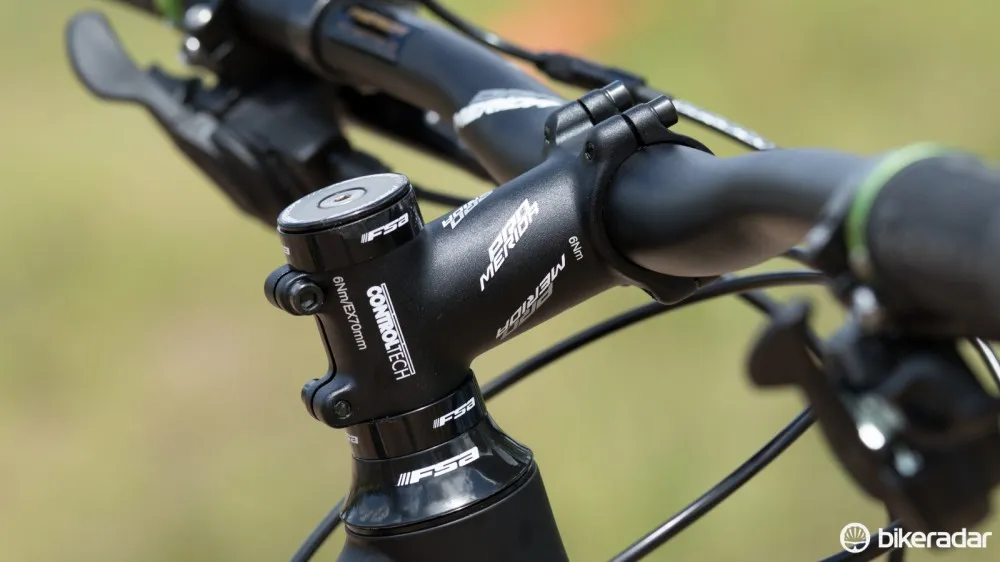
A 70mm stem and wide handlebars add confidence and stability on descents
A slackish 68-degree head angle and the short stem help to keep your weight rearward; while the 440mm chainstays are long enough to ensure you remain balanced between the two wheels. This means that high speed descents are met with stability and easy control, yet the bike is still sprightly enough to flick around where you want it to in slower and tighter terrain.
The bottom bracket is tall enough to allow newer riders easy clearance over fallen branches and when pedalling through rocky climbs. Combined with a short cockpit, we felt a little high in some tighter corners, but its a position that many riders will find comfortable.
Despite the upright (but not cramped) riding position, slack head angle and overall weight, the One-Twenty’s steeply forward sloping seat tube means your weight is kept towards the front, meaning ascents are met with dignity. Even when unlocked, the rear shock is on the firm side and so climbing is kept efficient with little energy lost.
Hit the descents and the rear suspension offers a bottomless feel; however, its progressive nature means reaching full travel on the rear shock is difficult.
Unfortunately, this characteristic is not well matched to the fork. As mentioned earlier, it's all too easy to get deep into the travel available out front. At first this caught us off guard, which resulted in riding front wheel heavy in rock gardens. We soon learned to keep our weight more rearward on this bike in order to overcome the overly eager front fork.
Riding over rocky trails also reveals a noisy front fork, which clacks from the internal spring hitting the sides of the fork. Thankfully the noise isn’t enough to overcome the rumble of your treads
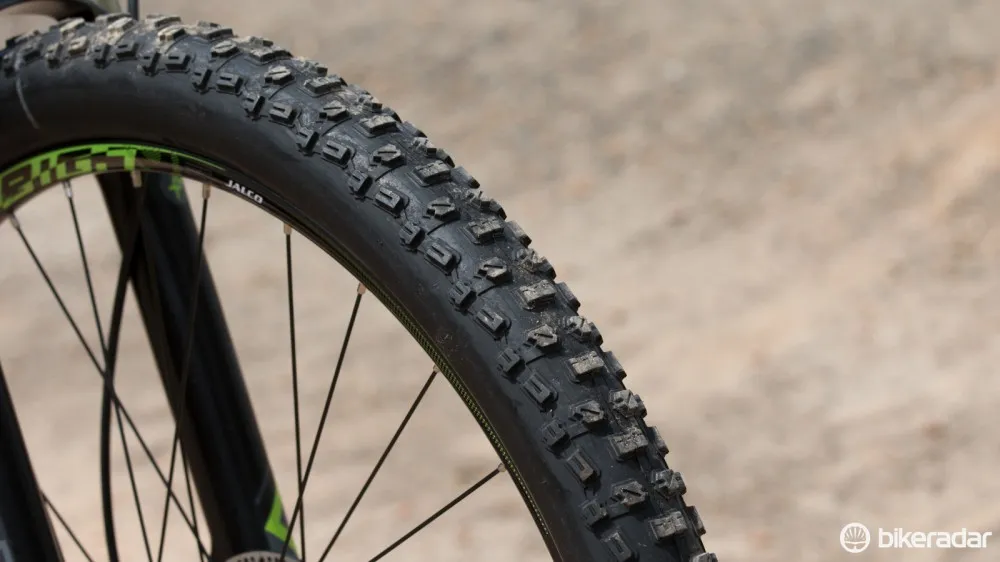
The large block-tread is a little firm, but does fine in a variety of conditions
The Merida branded tyres aren’t particularly fast rolling or traction-filled on slippery trail sections; but they have proven durable and well suited to a wide range of trail conditions. Some lighter, faster rolling models would be a nice upgrade, but it’s an upgrade that can wait.
Despite the front suspension showing some true negatives to the bike’s price, it didn’t scare us off. This bike isn’t perfect, but it offers a high quality frame that creates a solid platform for riders getting into the sport – and one that will prove suitably durable.
If it were our money, we’d recommend saving for the next price point, at which your options are plentiful from many brands and you wouldn’t be skimping on suspension quality. That said, if it’s all you can afford the One-Twenty 7.500 is a solid choice at a price where many cheaper-framed options – such as the Giant Stance, Jamis Dakar, Mongoose Salvo and a handful of ‘direct-buy’ and other models – rule the roost.
Note: At the time of writing this, Guy Kesteven is currently testing the Merida One-Twenty 7.500 on a long-term basis for our sister publication What Mountain Bike.
